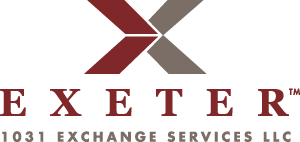Overview of Delaware Statutory Trusts or DSTs
As a Qualified Intermediary for 1031 Exchange transactions, one of the many concerns that we often hear from investors when structuring 1031 Exchange transactions is the difficulty in locating, identifying and ultimately acquiring suitable replacement properties within their required 1031 Exchange deadlines.
Tax Benefits Should Not Overshadow the Financial and Economic Aspects
Investors often rush into an acquisition of a replacement property that is not particularly well suited for their investment goals and objectives when faced with a rapidly approaching 1031 Exchange deadline. Although the income tax benefits of completing a 1031 Exchange transaction are important, the financial and economic aspects and benefits of a particular replacement property should not be ignored simply because of the 1031 Exchange identification and completion requirements and deadlines. You should let the economics of the replacement property guide your decision as opposed to making a decision solely based upon the income tax benefits.
Benefits of Buying Interests in Delaware Statutory Trusts (DSTs)
You should also carefully consider and evaluate the merits of co-ownership or fractional ownership interests in real estate such as the Delaware Statutory Trust or DST Investment, Tenant-In-Common or TIC Investment Property (compare DSTs to TICs) or other forms of co-ownership interests in real estate (CORE), when looking for suitable replacement properties for your 1031 Exchange, especially before rushing into an acquisition that may not make financial and economic sense.
Fractional or Co-ownership Interests in Real Estate
Simply stated, fractional, or co-ownership, interests in real estate allows you to acquire, together with other investors, a larger, potentially more stable, secure and profitable real property asset than what you could have acquired and afforded on your own. In addition, you can generally better diversify your real estate investment portfolio by acquiring interests in several Delaware Statutory Trusts or DSTs. You can achieve greater diversification and improved overall quality in your real estate investment portfolio through the use of the Delaware Statutory Trust or DST.
IRS Issues Revenue Ruling 2004-86
The Treasury Department issued Revenue Ruling 2004-86 in 2004, which established the requirements for investing in Delaware Statutory Trusts or DSTs as part of a 1031 Exchange transaction.
Delaware Statutory Trusts Sold by Securities Brokers
Delaware Statutory Trusts or DSTs are generally structured and sold (distributed) as securities and therefore must be purchased and sold through a securities representative. There are many DST Brokers and DST Sponsors that can provide you with guidance and advice regarding DST investment property ownership interests. DST Brokers typically work with numerous DST Sponsors and can better assist you in evaluating the various options and help you in making an educated and informed decision as to whether the DST investment property ownership interest is right for you.
Consult With Legal, Financial and Tax Advisors
You should always consult with your legal, tax and financial advisors prior to entering into any 1031 Exchange or Delaware Statutory Trust or DST investment property transaction, including the review of any Private Placement Memorandums (PPMs) or other offering material on Delaware Statutory Trusts or DST investment property interests.
